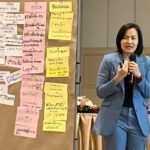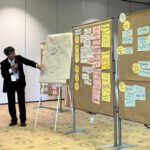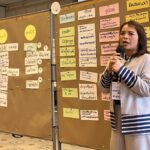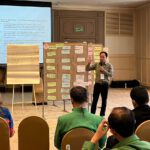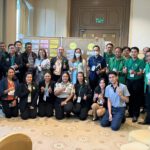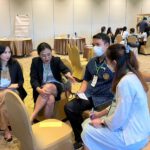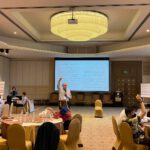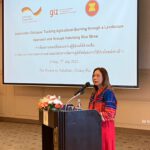GIZ and national partners convened a stakeholder dialogue in Chiang Rai to address the issue of agricultural burning and resulting air pollution in Northern Thailand. The dialogue aimed to provide a platform for mutual exchange on methods to combat burning and promote sustainable management methods for rice straw.
Supported by the German Ministry for Economic Cooperation and Development (BMZ), the event was attended by stakeholders and representatives from Department of Rice, Chiang Rai Provincial Office, Department of Agricultural Extension, Department of Agriculture, Chiang Rai Rice Research Center, Bank of Agriculture and Agricultural Cooperatives, Mae Fa Luang Foundation, Urmatt Ltd, Pepsi-Cola (Thai) Trading Co, Ltd, Chiang Mai University, Mae Fa Luang University, Mae Jo University, Thailand Development Research Institute and Highland Research and Development Institute. Up to 66 participants exchange views and ideas and came up with potential collaborative recommendations for next working steps.
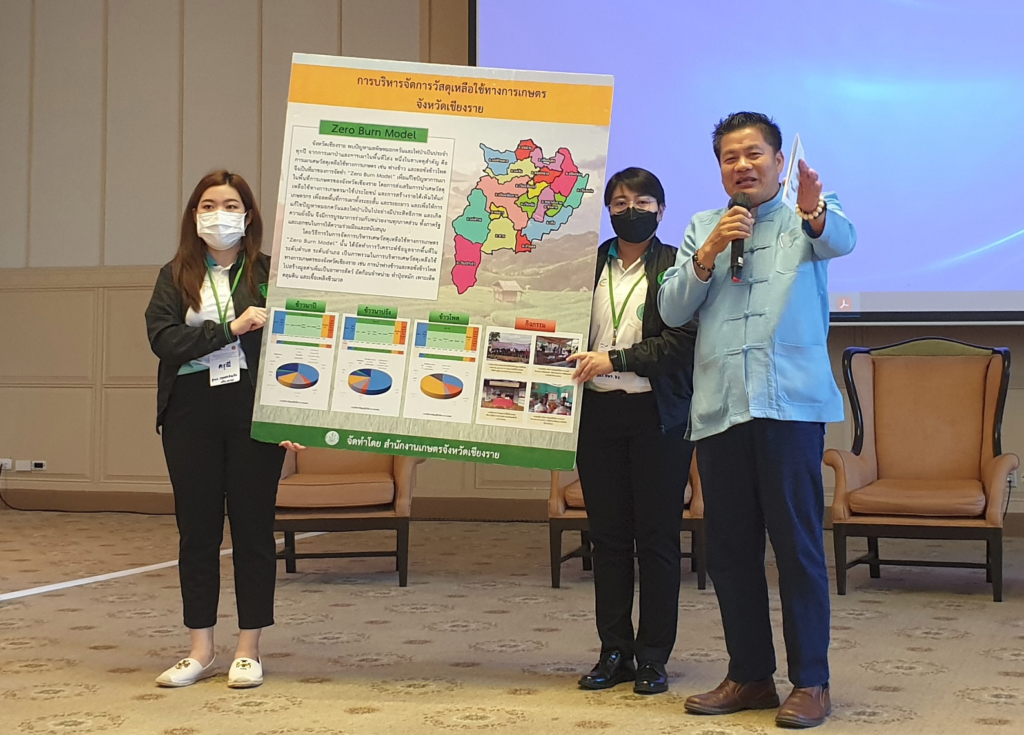
Chiang Rai, Chiang Mai and neighboring northern provinces have been experiencing annually severe challenges from smoke and haze connected to the burning of rice straw and stubble due to lacking post-harvest biomass management. The two upper northern provinces were recently ranked among the most polluted cities in the world. Haze and smoke from the burning contain the PM2.5 dust particles, posing not only public health risk of respiratory illnesses, but also contributing to greenhouse gas emission and climate change.
To combat the burning, Lt Dujdeaw Wongpak, Head of Chiangrai Provincial Agricultural Office, introduced the Chiang Rai Zero Burn Model the participants. “Air pollution is a major issue faced by people in Chiang Rai. The province is committed through the Chiang Rai Zero Burn Model to contribute to solve the problem by reduction of burning and supporting farmers to manage their rice straw,” he said.
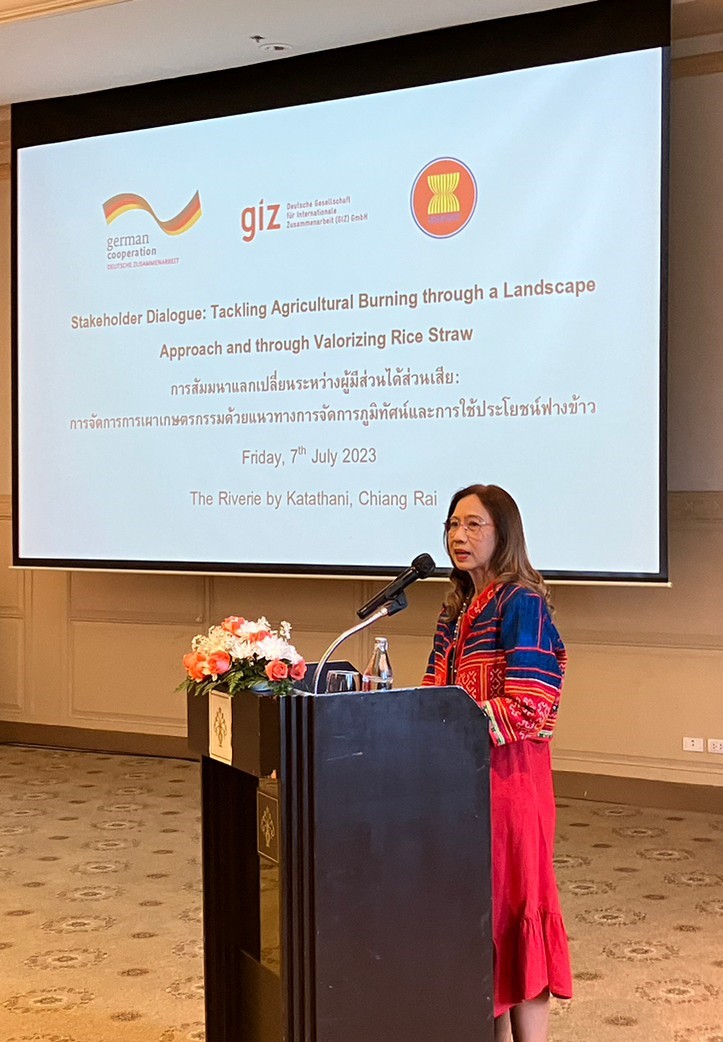
Pouchamarn Wongsanga, Project Director, GIZ, introduced the ASEAN-led initiative which could help facilitate straw management into practice. The “Piloting Sustainable Uses of Rice Straw” project, which promotes bio-fertiliser production from rice straw through composting, is one of the win-win solutions for farmers and the environment. Farmers can substitute expensive fertilisers, save farming cost and earn additional income while reducing greenhouse gas emissions from biomass burning and fertiliser application.
“Rice straw is often burned by farmers because there are no feasible management options for agricultural residues available. If we can demonstrate and promote methods to turn rice straw into a valuable resource, we can ultimately reduce burning and contribute to an improved air quality in Chiang Rai,” she said.
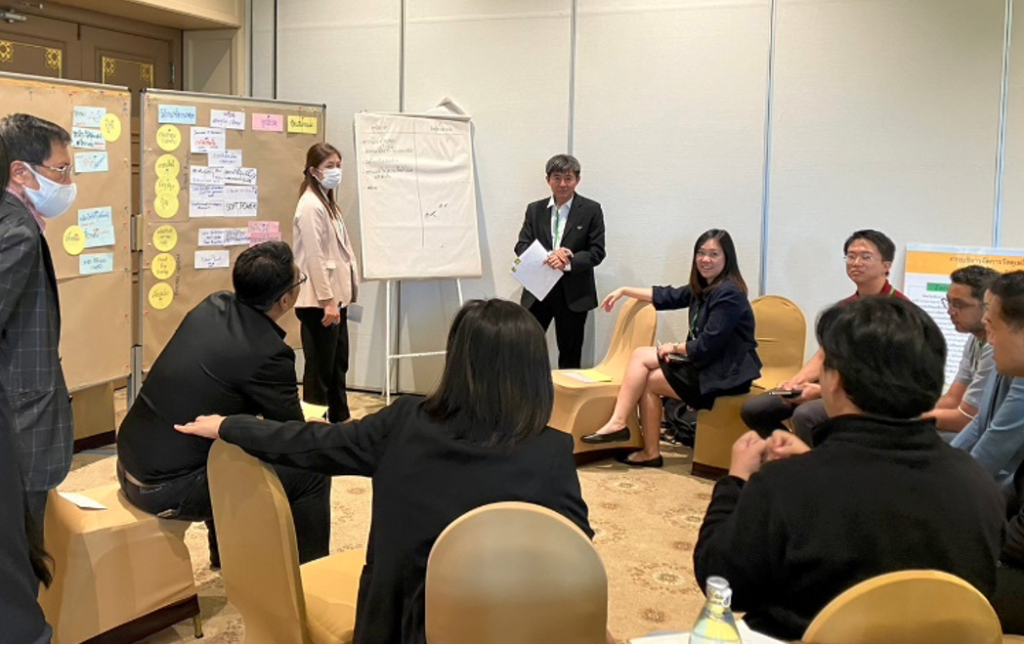
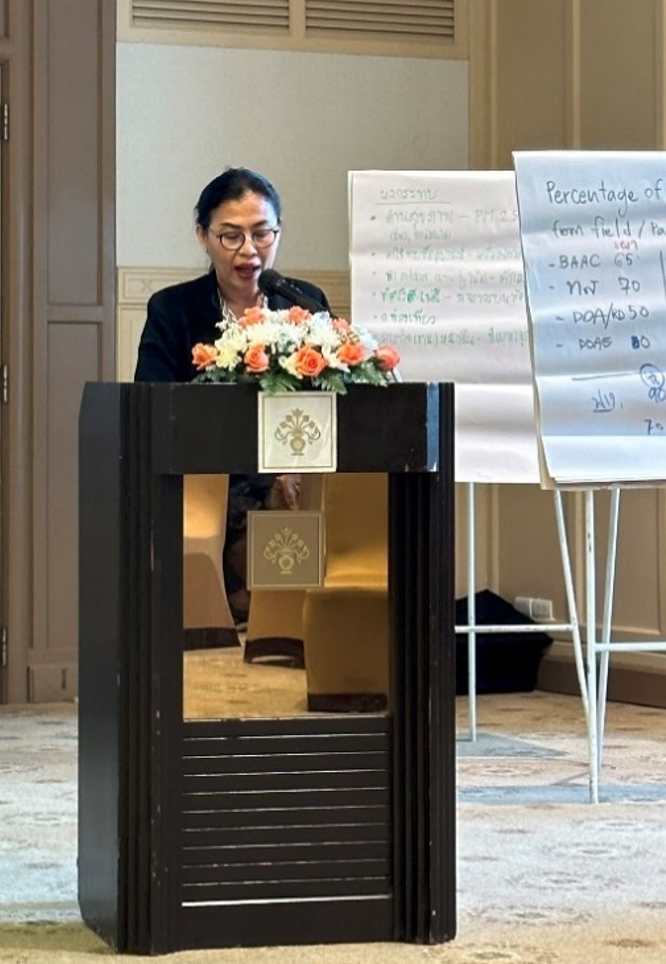
During the dialogue session, participants expressed their views on potential options and ways forward to tackle the burning problem. Feasible options were listed to avoid burning. Relevant incentives and regulations should also be developed for farmers to take action. Farmer representatives however, emphasised that the issue of rice straw burning remained because of weak law enforcement and limited knowledge and capacity of rice straw management. The existing unequal support from local government agencies could also discourage good practice in ploughing and rice straw utilisation.
In addition, the burning of forests is among the relating issues interconnecting with agriculture and require a broader landscape approach and stakeholder cooperation for a long-term solution to integrated landscape planning in the agriculture sector.


